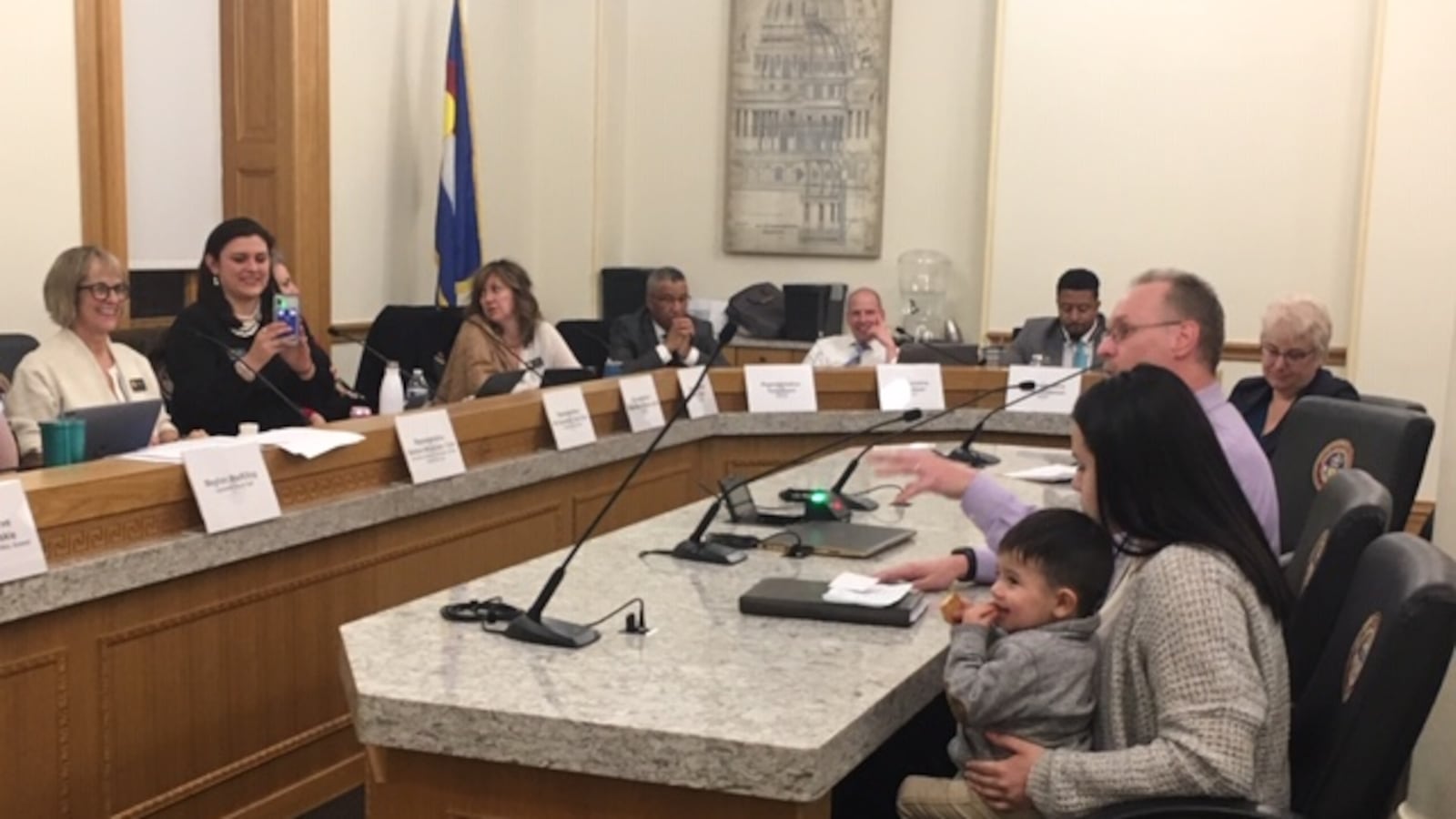Charter schools survived a funding challenge Tuesday, retaining an expected $10.5 million for the next school year.
All but one Democrat joined Republicans on the House Education Committee to defeat a bill aimed at reversing part of a 2017 law that shares a portion of local tax money with charter schools.
House Bill 1190 illustrated the tug of war over every bit of money in the state’s $7 billion K-12 budget. Several committee members lamented the inequities created by the state’s limited education funding.
“I don’t want to pit charters against the public schools,” said state Rep. Janet Buckner, an Aurora Democrat. “That’s pitting kids against kids.
“There just isn’t enough money. I think this needs major surgery as far as school finance is concerned.”
Charter schools have long enjoyed bipartisan support at the state Capitol, though the 2017 charter funding bill divided Democrats. The effort to roll back part of that legislation served as a test of charter school support in a new legislative session in which progressive Democrats hold more sway.
The committee heard from charter school parents, students, and administrators seeking to retain their funding, as well as traditional school parents and advocates who said they need every penny possible.
At issue was a provision of a 2017 law whose primary purpose is to require districts to share money from mill levy overrides, a kind of local property tax, with the charter schools they authorize.. That law also requires that equivalent state money be set aside for the state-level Charter School Institute schools, which aren’t part of any specific district.
State Rep. Cathy Kipp, a Fort Collins Democrat and former Poudre School District board member, wanted to reverse the part of the law that applied to the 39 Charter School Institute schools that enroll 18,000 students. She gave a graphics-packed presentation in her effort to sway the committee.
“Every dollar that’s spent for these more expensive (charter school) students means less money for the rest of our students,” Kipp said.
But several charter school administrators noted that they serve students with significant challenges. Among them was Sabrina Suarez, a student at Aurora’s New Legacy Charter, which serves students who are parents and their children.
“I didn’t always value education,” Suarez said, balancing her son on her lap. “I dropped out at 16. I thought I knew everything.”
Asked where she might have gone if New Legacy didn’t exist, she said, “I probably would have gotten an abortion and continued my two jobs.”
However, former state Rep. Sara Gagliardi, of Arvada, said giving the money to charter schools harms students in traditional public schools, citing the 27J Schools based in Brighton.
“Our three grandchildren who live in 27J go to school four days a week,” she said.
State Rep. Dafna Michaelson Jenet, a Commerce City Democrat who lives in the 27J district, said repeated voter rejection of tax hikes, despite a growing community, led to the four-day school week. Her legislative district also includes some of the charter schools operated by Charter School Institute.
“The development of that area grew faster than we could put schools,” Michaelson Jenet said. “We would have been without schools had it not been for those charter schools.”
State Rep. Tony Exum Sr., a Colorado Springs Democrat, said he voted against the bill giving money to charter schools two years ago, but couldn’t agree to repeal it.
“I felt we were robbing Peter to pay Paul,” he said. “In this bill, I feel like we’re robbing Paul to pay Peter.”
Only Democratic Rep. Lisa Cutter, of Littleton, voted for the measure, which the committee then postponed indefinitely.

